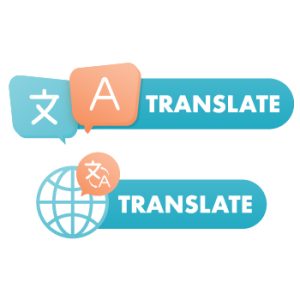Why is a slogan translation necessary?

Understanding of Slogan Translation
Slogan translation plays a crucial role in the success of a marketing campaign. It involves adapting the message of a slogan from one language to another while maintaining its original intent and impact. To understand the importance of slogan translation, it is essential to recognize the significance of reaching a target audience in their native language.
When expanding into new markets, businesses must effectively communicate with their target market. A well-translated slogan ensures that the brand message resonates with the audience, making it easier for them to connect with the offered product or service. For example, when American Airlines tried to enter the Chinese market, their slogan “Fly In Leather” was mistranslated to “Fly Naked.” This unfortunate translation created confusion and made the brand appear unprofessional in the eyes of potential customers.
The literal translation is not always practical when it comes to slogans. A professional translation is needed to capture the essence and impact of the original motto in the target language. For instance, a direct translation of “Tender Chicken” to Spanish might be “Pollo Tierno,” but it does not have the same marketing appeal as “Chicken Affectionate,” which translates to “Pollo Cariñoso.” Understanding the target culture and language is essential to convey the desired message effectively.
In summary, understanding the nuances of slogan translation is crucial in reaching a broader international market. It helps businesses avoid embarrassing or confusing mistranslations that negatively impact their brand image. Professional translation services play a vital role in accurately conveying the brand message while considering cultural considerations.


Importance of Accurate Slogan Translation
Accurate slogan translation is paramount when successfully marketing a brand or product in different language markets. A well-translated slogan can have a significant impact on the success of an advertising campaign, as it effectively communicates the intended message to a target audience.
In an increasingly globalized world, businesses are expanding their operations and reaching international markets. However, a language barrier can hinder effective communication without accurate slogan translation and prevent a brand from resonating with its intended audience. This is where the translation industry plays a crucial role, ensuring that the essence and impact of a slogan are maintained in different languages.
An accurately translated slogan captures the original intent and considers cultural nuances, making it relatable and appealing to the target market. This level of accuracy and cultural understanding prevents embarrassing or confusing mistranslations that can negatively impact a brand’s image.
Spanish translation provides a perfect example of the importance of accurate slogan translation. A literal slogan translation may not convey the target language’s desired message or marketing appeal. Professional translators consider cultural considerations and provide creative solutions to capture the essence of the slogan while resonating with the target audience.
Accurate slogan translation ensures a brand’s message is effectively communicated, increasing brand recognition and driving business success in different language markets. By investing in professional translation services, businesses can overcome language barriers and connect with their international audience, maximizing their reach and impact.
Why do slogans need to be translated?
Slogans need to be translated because they are an essential part of marketing, and reaching an international audience requires effective communication in their native language. Slogans are catchy phrases that encapsulate the brand message and create a lasting impression on consumers. They are crucial in establishing brand recognition and promoting products or services.
Companies must adapt their slogans to resonate with the local audience when expanding into new markets. Translating slogans ensures that consumers who speak different languages understand and appreciate the brand message. Without translation, sayings may lose their impact and fail to connect with the target market.
Additionally, translating slogans helps companies avoid cultural misunderstandings and embarrassing mistranslations. Specific phrases or wordplay that work well in one language may not make sense or even offend in another. Accurate translation considers cultural considerations, ensuring that the message remains effective and culturally appropriate.
Furthermore, slogans must be translated to maintain consistency across all marketing channels. In an increasingly globalized world, brands often have a solid online presence, and their slogans appear on websites, social media, advertisements, and packaging. Translating slogans ensures the brand message remains consistent across different platforms and reaches a broader audience.


Challenges in translating slogans
Translating slogans can be challenging, requiring careful consideration of language, cultural nuances, and marketing appeal. One of the main challenges in translating slogans is capturing the essence and impact of the original message in a way that resonates with the target audience in the target language. Sayings often use wordplay, idioms, or cultural references that may not have direct equivalents in other languages, making it difficult to find a perfect translation.
Another challenge in translating slogans is maintaining consistency across different languages while ensuring the saying has the desired marketing appeal. A motto that works well in one language may not have the same impact when translated directly, requiring translators to adapt the message to capture the target market’s attention and interest.
Cultural differences also present a challenge in slogan translation. What may be acceptable or even celebrated in one culture may be inappropriate or offensive in another. Translators need to be aware of these cultural nuances and find alternative ways to convey the intended message while respecting the cultural sensitivities of the target audience.
Additionally, time constraints and tight deadlines can add pressure to translating slogans. Businesses often want to launch their marketing campaigns as soon as possible, leaving translators with limited time to ensure the accuracy and effectiveness of the translations.
Overcoming these challenges requires skilled translators who have a deep understanding of both the source and target languages and the cultural contexts in which the slogans will be used. It is also essential for businesses to provide clear guidelines and briefings to translators to ensure that their brand message is accurately and effectively translated across different languages.
Examples of successful and unsuccessful slogan translations
Examples of successful and unsuccessful slogan translations can provide valuable insights into the importance of slogans accurately conveying a brand’s message in different languages. Let’s start with some successful translations that have effectively captured the essence of the original slogans in the target language.
One of the most well-known examples is Nike’s slogan, “Just Do It,” which has been successfully translated into multiple languages while maintaining its impact. In Chinese, the motto is translated as “只管去做,” which means “just go ahead and do it,” effectively conveying the motivation and determination behind the brand.
Another successful translation is McDonald’s slogan, “I’m lovin’ it.” When translated into Mandarin, it becomes “我就喜欢,” which means “I just like it,” effectively capturing the enthusiasm and enjoyment associated with the brand.
On the other hand, numerous examples of unsuccessful slogan translations have led to embarrassment or confusion. One infamous example is KFC’s slogan “Finger-lickin’ good,” which was translated into Chinese as “We’ll eat your fingers off.” This unfortunate translation not only confused but also generated negative publicity for the brand.
Another example is Coors’ slogan, “Turn it loose,” which was translated into Spanish as “Suffer from diarrhea.” This mistranslation not only created a comical effect but also portrayed the brand in a negative light.
These examples highlight the importance of accurate translation in effectively conveying a brand’s message and avoiding potentially damaging mistakes. Professional translation services ensure that slogans resonate with the target audience and maintain the intended impact across different languages.
Cultural considerations in translating slogans
When translating slogans, cultural considerations are crucial in ensuring the message resonates with the target audience in different languages. Slogans often rely on wordplay, cultural references, or idioms that may not have direct equivalents in other languages. Therefore, translators need to navigate these cultural nuances to find alternative ways to convey the intended message while respecting the cultural sensitivities of the target audience.
Cultural considerations involve understanding the target culture’s values, beliefs, and customs. Translators must be aware of potential cultural misunderstandings and avoid using phrases or references that may be inappropriate or offensive. By taking cultural considerations into account, translators can adapt the message to maintain the slogan’s essence while ensuring it is culturally appropriate and appealing to the target market.
For example, a slogan that relies on a pun or a specific cultural reference may not make sense or have the same impact in another language. Translators need to find creative solutions to capture the essence of the original slogan while adapting it to the cultural context of the target audience. This can involve using local idioms, incorporating cultural symbols, or finding alternative wordplay that resonates with the target culture.
Ultimately, cultural considerations in slogan translation help businesses avoid potential pitfalls and ensure their brand message is accurately and effectively communicated in different languages. Companies can overcome language barriers and connect with their international audience by working with skilled translators who deeply understand the source and target cultures.
Tips for effective slogan translations
When it comes to translating slogans, there are a few tips to keep in mind to ensure accuracy and effectiveness. Here are some key strategies for effective slogan translations:
- Understand the target culture: Before translating a slogan, it is essential to have a deep understanding of the target culture. This includes familiarizing yourself with their values, customs, and beliefs. Understanding the target culture allows you to adapt the slogan to resonate with the audience and avoid cultural misunderstandings.
- Capture the essence of the original slogan: A successful slogan translation should capture the importance and impact of the original message. Instead of a literal translation, focus on conveying the intended meaning and emotional response. Translators should find creative solutions to adapt the slogan to maintain its effectiveness in the target language.
- Consider local idioms and cultural references: Incorporating local phrases and cultural references can help make the slogan more relatable and appealing to the target audience. By using familiar expressions or symbols, the translated slogan can better connect with consumers on a cultural level.
- Seek professional translation services: To ensure accuracy and quality in slogan translations, it is recommended to work with professional translators. Professional translators have the linguistic and cultural expertise to convey the brand message in different languages accurately. They can provide creative solutions and adapt the slogan to the target language while considering cultural nuances.
By following these tips, businesses can achieve effective slogan translations that resonate with their international audience, enhance brand recognition, and drive business success in different language markets. Accurately translated slogans are a powerful tool for effective marketing communication across cultures.
Frequently Asked Questions
A slogan is a short and memorable phrase, or motto businesses or organizations use to convey their brand message or identity. It is often used in marketing campaigns to leave a lasting impression on the target audience.
Translating a slogan is necessary for businesses to expand their reach into international markets. By solving the saying in different languages, they can effectively connect with diverse audiences and resonate with them on a cultural and linguistic level.
While using the same slogan across all countries might be tempting, it may not always be practical. Cultural differences and language nuances can alter the intended message of the saying. Translating the slogan ensures it remains relevant and impactful in each local market.
A well-translated slogan enhances brand perception by showing that the company respects and values the local culture and language. It demonstrates a commitment to understanding and connecting with customers in their native language, fostering a positive brand image.
A balance of both literal translation and cultural adaptation is essential. While a literal translation retains the original meaning, cultural transformation ensures that the slogan makes sense and resonates emotionally with the target audience in the specific cultural context.




